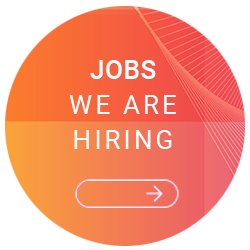By Roland Kreutzer, Head of Public Sector Consulting, mgm consulting partners
The recently published eGovernment Monitor 2025 by Initiative D21 sheds light on the situation: Yes, there are now plenty of digital administrative services available – but citizens and businesses are right to point out that many of them still seem analogue, difficult to access or untrustworthy. If we want to take the digital state seriously, we must not only deliver ‘more’, but above all deliver better.
Some key points of criticism from the study that are particularly significant
- Digital administrative services are often difficult to find. Users do not know where and how they can access services online.
- The registration and identification process discourages many. Too many interfaces, too many forms, too many hurdles.
- Trust in the state and administration is declining – digital services are perceived as unreliable and not user-friendly.
- Digital access alone is not enough: services must be simple, intuitive, accessible and guided by a genuine user-oriented approach.
My assessment: What needs to happen now
Based on what citizens want (and what the study shows), I believe the following steps are essential:
- Binding standards & common architecture: Government agencies must set a small number of meaningful standards that are binding at all levels and clearly documented, so that each authority does not have to review them anew but can apply them directly. This requires the courage to simplify and the political will to implement these standards consistently.
- More cooperation between the federal government, states and local authorities: Isolated systems and solutions that are not connected to other levels are of little use. What is needed is a genuine portal network, reuse and scalability.
- Investment in user measurement and feedback: Digital administrative services must be regularly reviewed and optimised with user feedback. Tools, platforms and agile processes help here.
- Change management & skills: Technology alone is not enough. A cultural change is needed in administrations: openness, courage to experiment, employee participation. Digitalisation is a huge transformation that affects not only IT, but also organisations.
How mgm can help overcome these challenges
As a consulting and technology partner with a strong focus on the public sector, we at mgm are convinced that the potential is there – we have seen it and regularly launch successful transformation projects with our solutions. Here are four levers that we consistently use to address precisely these points of criticism – and thus enable real progress.
Findability & clarity
User-oriented design + central platforms instead of isolated solutions
With our A12 Enterprise Low Code platform, we create components that deliver standardised, reusable modules: portals, dashboards and services that can be integrated into existing administration portals.
Registration & identification effort: Modern identity solutions + integration of existing registers + once-only principle
Integration of secure digital identities, development of interfaces to registers, process consulting for once-only data storage.
Trust & quality: Transparency, security, robust software processes
Model-driven development, security by design, governance and quality assurance with mgm consulting partners.
User centricity & accessibility: Design processes, UX training, change management
User interviews, prototyping, usability testing; support for organisational changes for sustainable user orientation.
AI-supported administrative processes: Use of AI for automation, text and data analysis, decision support
We develop and integrate AI solutions, e.g. for automated process handling, chatbots, intelligent document classification or forecasts. This makes processes faster, more transparent and more resource-efficient – always GDPR-compliant and explainable.
Strategy & organisational development: Holistic digital strategies and governance models
We support ministries, state and local administrations in developing digital target visions, roadmaps and implementation strategies – including budget and funding planning.
Training & Competence Programmes: Building digital skills in administrative teams
From agile methods to AI basics: we design training programmes so that employees can not only use the new systems, but also actively develop them further.
We see it as our responsibility – and as a partner – to be a bridge builder in precisely these challenges. With our combined expertise in consulting, organisation, technical implementation and sustainability, we can help administrations not only meet citizens’ expectations, but also regain their trust. Because progress is not when services exist, but when they work – simply, securely, understandably and usefully.
Here you will find all the information about our services for the public sector.







